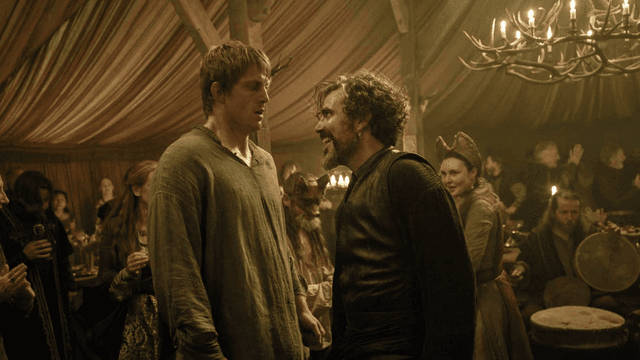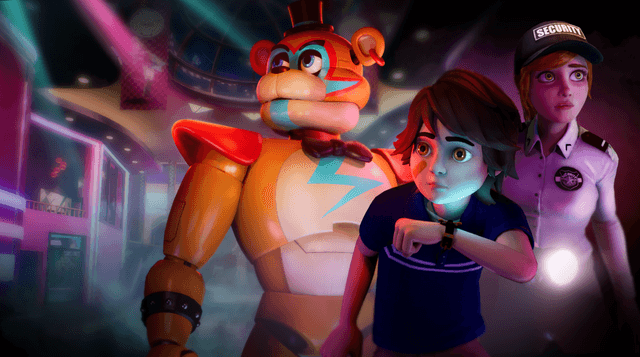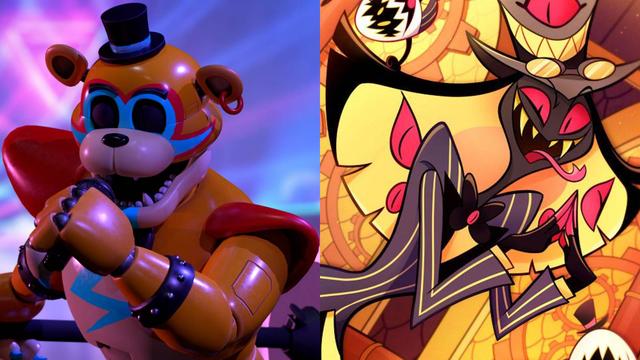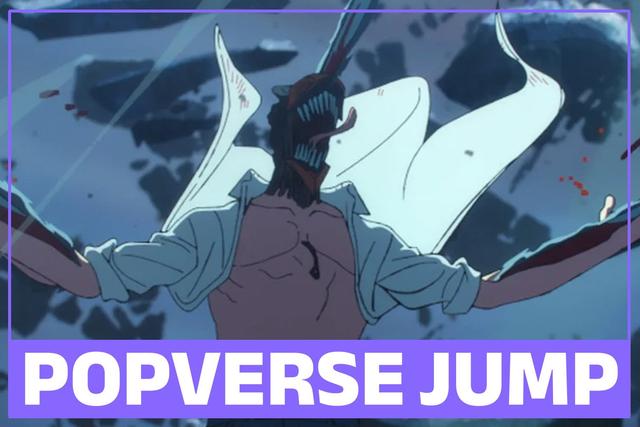If you click on a link and make a purchase we may receive a small commission. Read our editorial policy.
The rise of the Wall: Behind Amanda Waller’s Dawn of DC villainous turn
Here’s how Amanda Waller steadily transformed from conflicted ally into the biggest villain in the DCU

With all the recent changes coming to the DC Universe in comic books, television, and film projects, one character that stands prominently across DC's various multimedia iterations is Amanda Waller. Created by John Ostrander, Len Wein, and John Byrne in 1986’s Legends #1, Waller is shadowy government official commanding the infamous Task Force X, better known as the Suicide Squad. Though Waller has always personified the more morally ambiguous side of the DCU, she has now largely ditched any pretense of fighting for the greater good and has become an outright villain.
While there’s certainly a valid argument to be made that Waller has always been an antagonist to the DCU’s superhero community, any doubt about her motivations is discarded in DC’s current publishing initiative Dawn of DC. More than just a development in the main, canonical DCU, this depiction of Waller is paralleled and expanded upon in non-canonical DC comic book titles, including the DC Black Label miniseries Waller vs. Wildstorm by Spencer Ackerman, Evan Narcisse, and Jesús Merino. The influences of this shift can be traced most visibly to Waller’s appearances in the DC Extended Universe in film and television, memorably played by Viola Davis, with Waller expected to remain in DC Studios’ revamp of their multimedia universe led by CEOs Peter Safran and James Gunn.
Here is how Amanda Waller has steadily transformed into the most deadly character in the DCU, where she currently stands, how this change is reflected in other DC titles, regardless of continuity, and how multimedia incarnations of the character influenced Waller finally and definitively breaking bad.
From Infinite Frontier to the Dawn of DC

The roots of Waller’s clear transition to villainy can be traced to DC’s Infinite Frontier publishing initiative, which ran from 2021 to 2022, exploring the restored multiverse spinning out of the end of Scott Snyder and Greg Capullo’s 2020 crossover event Dark Nights: Death Metal. Among the titles relaunched during Infinite Frontier is Suicide Squad, with the ongoing series helmed by Robbie Thompson, Eduardo Pansica, and Julio Ferreira. No longer content using Task Force X to protect American interests in the DCU, Amanda Waller expands her mission to target other universes, including though detention and forcible recruitment of characters from other realities in the reborn multiverse.
Waller’s aggressive expansion isn’t restricted to her merciless leadership of Task Force X across the multiverse but in darker, more underhanded strategies in the main DCU. One of the Suicide Squad’s earliest missions during Infinite Frontier is a clandestine raid on Teen Titans Academy in an attempt to kidnap and recruit one the superhero school’s young heroes-in-training. When longtime Task Force X field commander Rick Flag opposes Waller’s new direction, she has him illegally taken into custody and extrajudicially detained, making her command of the organization absolute. After Flag escapes and news breaks that Waller is using illegal cloning technology to give the Suicide Squad its own Superboy, Waller is deemed an international criminal and goes into hiding.
Waller remains a villainous mastermind into the 2022 crossover event Dark Crisis on Infinite Earths by Joshua Williamson and Daniel Sampere. Appearing in an epilogue to the main narrative teeing up Dawn of DC, Waller continues her multiversal ambitions with Peacemaker by her side, this time with her plans explicitly targeting the superhero community. Working as Waller’s de facto enforcer, Peacemaker tries to rein in the Doom Patrol and Titans while preventing the Green Arrow family from discovering what Waller is up to. The stakes are clearly set in a short story by Williamson and Leandro Fernandez in Dawn of DC Primer: Special Edition #1, with Waller approaching the DCU’s supervillain community and offering a bounty on whichever heroes they can kill.
Waller’s wider comic book heel turn

DC’s mature reader-oriented publishing imprint DC Black Label similarly presents different versions of Waller, some more in line with her traditional Suicide Squad role and others presenting her more antagonistically. Brian Azzarrello and Alex Maleev’s Suicide Squad: Get Joker! and Kyle Starks and Steve Pugh’s Peacemaker Tries Hard! both offer a more conventional depiction of Waller, the immoral government bureaucrat still arguably fighting for the greater good by any means necessary. However, Simon Spurrier and Aaron Campbell’s Suicide Squad: Blaze and the aforementioned Waller vs. WildStorm hews to the more morally compromised Waller depictions surfacing in growing prominence.
Blaze shows Waller approaching inmates and offering them one last chance at redemption by undergoing an experimental treatment to become superheroes before their medically induced upgrade kills them. This choice in recruitment method underscores the relevance of the “Suicide Squad” moniker, with its artificially created superheroes given a delayed death sentence, whether they’re victorious or not. Waller vs. WildStorm goes even darker with its depiction of Waller, who seizes control of Checkmate by hook-and-crook, putting her at odds with WildStorm’s classic black ops organization Stormwatch for the fate of its world.
The DCEU effect

Waller breaking bad is predated by the character’s more sinister depiction in the DCEU, still leading Task Force X but as morally questionable as ever in order to achieve her goals. There had been multimedia adaptations of Waller before, more notably in the DC Animated Universe’s Justice League Unlimited and the Arrowverse’s Arrow – played by CCH Pounder and Cynthia Addai-Robinson, respectively. These prior versions are more noble and relatively more cooperative in their own way, with the Arrowverse’s Waller going as far to die rather than let A.R.G.U.S. fall into enemy hands.
Viola Davis made her debut as Waller in 2016’s Suicide Squad, in Waller's usual role commanding Task Force X to protect American interests worldwide. This Waller’s extreme tactics help in the revival of the magical supervillain Enchantress with Waller personally executing her staff to maintain absolute secrecy. Davis reprises her role as Waller in Gunn’s 2021 sequel The Suicide Squad, trying to cover-up the American government’s involvement in experimenting on the extraterrestrial villain Starro. The spinoff HBO Max original series Peacemaker exposes Waller’s illicit role in a global extraterrestrial infiltration, leading to her eventual disgrace. Davis is expected to reprise her role in a solo series focusing on Waller in the revamped multimedia DCU.
The Wall’s fall a long time coming?

Historically, Waller is a government bureaucrat, who often shares a common goal with DC’s superheroes in keeping the peace. She often clashes with said superheroes over her questionable tactics and pathological drive to control everything around her. In a way, Waller is the closest analogue the DCU has to the Marvel Universe’s Nick Fury, who similarly relies on strategies the heroes don’t necessarily condone due to their moral ambiguity, though Waller clashes with the heroes more directly and frequently. But starting with Infinite Frontier, any semblance of cooperation between Waller and the superhero community has effectively been squashed.
Waller is playing a more dangerous game now, hunting for superheroes as she seeks to reassert herself as the mastermind of the DCU in the resulting chaos from Dark Crisis. Less than a year into Dawn of DC, Waller is positioned as the comic book universe’s biggest antagonist, going even further than her film and television counterpart. In the past, working with Waller was something considered an occasional necessary evil. Now in Dawn of DC, Waller has become the evil she long opposed herself.
For a chance to see Amanda Waller in the comic book spotlight, Waller vs. WildStorm #2 is on sale now. The miniseries is written by Spencer Ackerman and Evan Narcisse, illustrated by Jesús Merino, inked by Victor Cifuentes, colored by Michael Atiyeh, and lettered by Dave Sharpe. Waller vs. WildStorm #4 goes on sale July 25.
Follow Popverse for upcoming event coverage and news
Find out how we conduct our review by reading our review policy
Let Popverse be your tour guide through the wilderness of pop culture
Sign in and let us help you find your new favorite thing.
















Comments
Want to join the discussion? Please activate your account first.
Visit Reedpop ID if you need to resend the confirmation email.